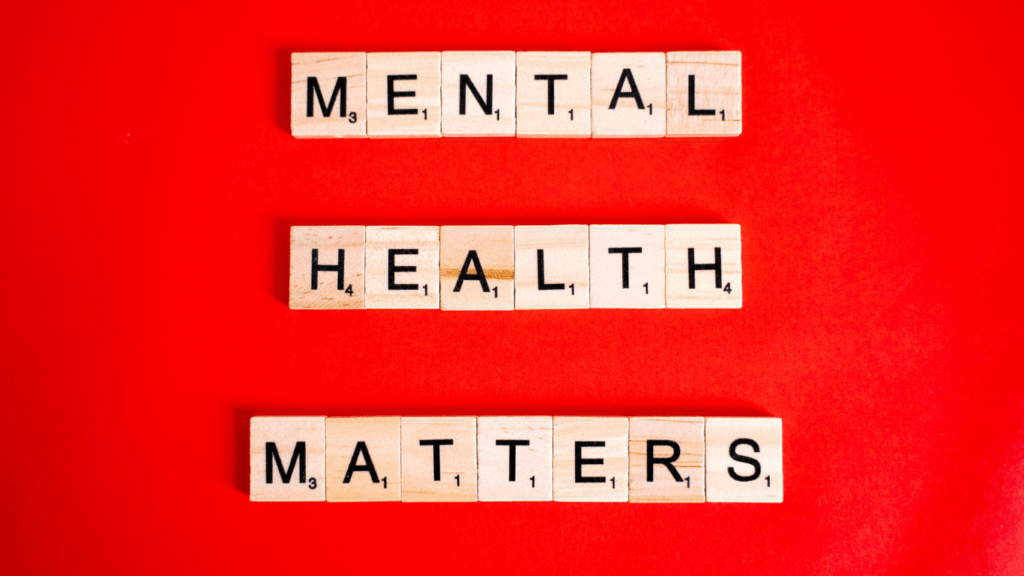Understanding Stress And Its Impact
Stress serves as the body’s response to any demand or threat, triggering a cascade of physical and emotional reactions. Various factors, such as work pressures or personal challenges, can induce stress. The body’s “fight or flight” response gets activated under stress, releasing hormones like adrenaline and cortisol.
Chronic stress has adverse effects on mental and physical well-being. Over time, it can lead to issues such as anxiety, depression, high blood pressure, and heart disease. Cognitive functions like memory and concentration might decline under prolonged stress.
Stress affects not only the body but also behaviors and emotions. Symptoms like irritability, fatigue, and sleep disturbances are common. Noticeable changes in appetite and social withdrawal may also occur.
Recognizing the symptoms and sources of stress is crucial for managing its impact. Paying attention to both physical signs and emotional cues reveals areas needing attention. Awareness allows the integration of effective stress-management techniques into daily routines.
Identifying Common Stressors

Identifying stress sources helps manage and mitigate their effects on well-being. Common stressors often fall into these categories:
Work-Related Stress
Work-related stress affects many individuals. Factors include long hours, tight deadlines, and heavy workloads. According to the American Psychological Association (APA), 61% of workers feel stressed due to job-related pressures. Bullying or conflicts with colleagues also contribute to stress at work. In demanding environments like healthcare or finance, burnout rates increase due to constant high-pressure situations.
Relationship Stress
Relationship stress often stems from communication issues, trust problems, and differing expectations. Relationship strains include conflicts with partners, family disputes, and friendship tensions. Data from the National Institute of Mental Health (NIMH) highlights that strained relationships correlate with increased anxiety and depression levels. It’s important to address issues early to prevent escalation.
Financial Stress
Financial stress causes significant mental strain. Common triggers are debt, insufficient income, and unexpected expenses. The American Psychological Association (APA) reported that 72% of adults feel stressed about money at least some of the time. Limited resources or job instability exacerbate financial concerns, affecting overall well-being.
Practical Tips For Reducing Stress
Daily life can be overwhelming, with various stressors affecting our mental well-being. I’ve found that integrating practical techniques into my routine helps reduce stress and improve overall health.
Mindfulness And Meditation
Mindfulness involves staying present and fully engaging with the moment. Practicing mindfulness through meditation can reduce stress. I start with five minutes of focused breathing, sitting quietly and paying attention to my breath. Guided meditation apps like Headspace or Calm offer structured sessions. Deep breathing exercises, repeated several times a day, also help in calming the nervous system.
Physical Exercise And Healthy Eating
Regular physical exercise is essential for stress reduction. I aim for at least 30 minutes daily, whether it’s walking, jogging, or yoga. Physical activity helps release endorphins, improving mood and energy levels. Healthy eating also plays a crucial role. I focus on a balanced diet rich in fruits, vegetables, lean proteins, and whole grains. Reducing caffeine, sugar, and processed foods minimizes stress-related physical impacts.
Time Management And Prioritization
Effective time management can significantly lower stress levels. I organize my tasks by priority, using tools like to-do lists or digital planners. Breaking tasks into smaller, manageable chunks makes them less daunting. Allocating specific time slots for work, relaxation, and self-care ensures a balanced life. Saying no to non-essential demands preserves energy and reduces unnecessary stress.
Each section ties directly to actionable techniques, offering a clear and practical approach to managing stress.
Building A Support Network
Connecting with others creates a solid foundation for stress management. Relationships and professional assistance play vital roles in this process.
Friends And Family
Engaging with friends and family provides emotional support, reducing stress. Family members offer a sense of belonging and understanding. Their support is crucial during challenging times. Close friends listen and share valuable perspectives, acting as stress buffers. Regular communication with these groups strengthens your support network and alleviates stress.
Professional Help
Seeking professional help addresses complex stress issues. Therapists and counselors offer specialized strategies for stress management. They facilitate understanding underlying causes and developing coping mechanisms. Support groups, led by professionals, offer confidentiality and shared experiences, fostering a community of acceptance. Integrating professional assistance into your routine can significantly ease stress levels.
Long-Term Stress Management Strategies
Effectively managing stress over the long term involves adopting sustainable practices. Focusing on realistic goals and cultivating healthy habits makes a significant difference.
Setting Realistic Goals
Breaking down large projects into smaller tasks ensures manageability. Rather than feeling overwhelmed by extensive commitments, I tackle one task at a time. I aim for achievable targets that align with my capabilities, which helps maintain momentum and motivation.
Creating a structured plan transforms vague ambitions into concrete steps. By prioritizing tasks based on their importance and deadlines, I avoid the trap of procrastination. This method reduces the anxiety that comes with impending deadlines and excessive workloads.
Celebrating small achievements acknowledges progress and reinforces positive behavior. Recognizing these milestones, no matter how minor, fosters a sense of accomplishment and further motivates me to continue pursuing my goals.
Developing Healthy Habits
Regular physical activity, such as a 30-minute daily walk, significantly reduces stress.
Engaging in consistent exercise releases endorphins, which elevate mood and improve overall well-being.
Adopting such as:
- nutritious diet
- rich in fruits
- vegetables
- lean proteins
- whole grains
- supports mental clarity
- resilience
I avoid excessive caffeine and sugar, which can exacerbate stress and lead to energy crashes.
Ensuring adequate sleep, around 7-9 hours per night, is crucial for the body’s recovery processes. Quality rest enhances cognitive functions, improving focus and reducing irritability throughout the day.
Practicing mindfulness techniques, such as meditation or yoga, allows me to stay present and centered. These practices enhance emotional regulation and provide tools to cope with stress more effectively.
Maintaining a routine helps to establish stability and predictability. By setting consistent daily schedules, I minimize chaos and promote a sense of control over my environment.

 David Boyd brought valuable insights to News Flip Network, contributing his knowledge in business and technology. His work on streamlining the site’s interface and optimizing backend processes ensured that the platform operates efficiently. Boyd's efforts in integrating advanced tools and managing technical aspects played a significant role in the site's reliable and timely news delivery.
David Boyd brought valuable insights to News Flip Network, contributing his knowledge in business and technology. His work on streamlining the site’s interface and optimizing backend processes ensured that the platform operates efficiently. Boyd's efforts in integrating advanced tools and managing technical aspects played a significant role in the site's reliable and timely news delivery.